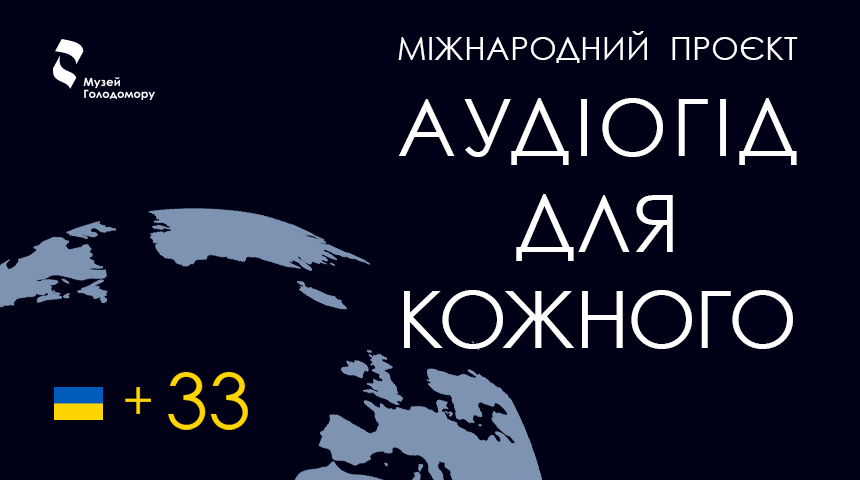Audio Guide for Everyone
“Audio Guide for Everyone” is an international project of the Holodomor Museum, thanks to which a high-quality studio recording of an audio tour in 33 languages of the world was and made.
20 organizations and 135 people worked on the audio guides. 170 hours of audio were recorded in 1.5 years of operation. The Audio Guide for Everyone project offers a museum tour in 33 languages, which is perhaps the largest language variation in any museum in the world.
English, German, Croatian, Russian, French, Latvian, Norwegian, Italian, Polish, Czech, Arabic, Turkish, Japanese, Spanish, Portuguese, Romanian, Swedish, Lithuanian, Hebrew, Chinese (Putonghua), Swahili, Hindi, Virgil , Belarusian, Greek, Kazakh, Persian, Vietnamese, Hungarian, Korean, Ukrainian, Azerbaijani, Crimean Tatar are the languages in which you can listen to the audio tour.
Audio guides include a long tour of about 40 minutes, a short tour of 20 minutes, and information about the exhibits in the Museum’s Hall of Memory.
Terms of use:
- Use the audio guide only within the Hall of Memory.
- To use the audio guide, leave your documents (driver’s license, pension certificate, etc.) as collateral at the museum box office.
- Audio guides are avaliable from 10:00 to 17:00. The audio guide should be returned by 18:00.
- Before using the audio guide, pay for the service at the museum box office. The cost of an audio tour in Ukrainian is UAH 30, in a foreign language it ia UAH 90.
- The visitor is responsible for maintaining the audio guide. If the device is lost / damaged, a fine of UAH 3,725.00 is charged.
- The museum may not issue an audio guide to a visitor if the devices are not available or if he / she is intoxicated with alcohol or drugs.
- After listening to the audio tour, return the audio guide to the administrator.
History: The museum staff, together with volunteers, NGOs and embassies, translated and recorded the sightseeing tour and information about the exhibits in the Museum’s Hall of Memory.
People responded very warmly to the Holodomor Museum’s request for help with translation and recording of texts. Some volunteers, such as Stefan Lupschak from Romania, Christian Weise from Germany and Asaf Bartov from Israel, came to Kyiv only to record the tour. Separate recordings were made in professional studios abroad, and Italian and Persian audio guides were read by popular announcers Salvatore Mazza and Mahmudi Nima.
